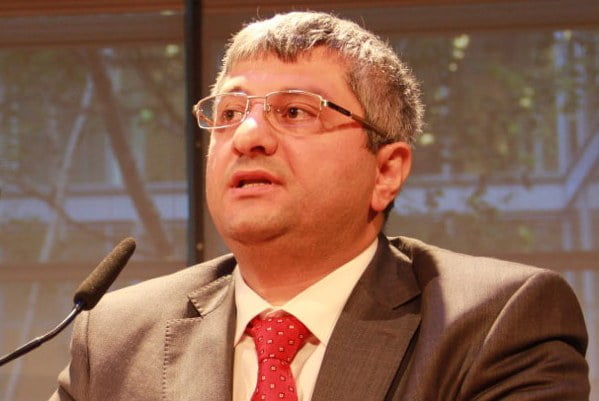Erdoğan media’s accusations against Gülen and Hizmet

Date posted: January 3, 2014
İHSAN YILMAZ
This piece is based on an academic paper that I published in 2007.
The accusations leveled against Fethullah Gülen and the Hizmet movement reminded me of this paper of mine. In a section of the paper, I compare accusations against Gülen and Mevlana Jalaluddin Rumi, a towering spiritual figure of the 13th century. The accusations are almost the same. While I discuss the neonationalist, ultraconservative, radical Islamist, Kemalist and ultraleftist accusations against Gülen in my paper, today, almost all of the same lies are now repeated almost verbatim by the TV channels and newspapers under the control of Prime Minister Recep Tayyip Erdoğan.
Gülen’s antagonists repeat accusations that the papacy has bought a community or movement in Turkey in a bid to produce an adulterated and altered Islam. They reacted negatively to Gülen’s visit to Vatican City to meet with the pope, which they consider a humiliation. They allege that “some groups” are the secret agents of the papacy in Turkey. They also repeatedly claim that some secret agreements between “a group,” the Papacy and the Orthodox Church have been reached to reopen the Halki Seminary, and, when the conditions are right, that Greeks (Rum) will immigrate to Turkey. They also strongly argue that the Muslims who advocate dialogue with Christians and Europeans are either naïve, ignorant or, far worse, traitors. They even imply that Gülen is not a Muslim at all but a secret cardinal of the Catholic Church. Some others claim that Gülen is a man of the Korea-based cult of Sun Myung Moon. An ultra-nationalist has argued that “CIA agents such as Graham Fuller and Paul Henze are disciples [murid] of Gülen.”
Similar to that of contemporary times, the social and political conjuncture was very turbulent when Rumi emerged on the scene. It was a period in which many conflicts and disorders were happening one after the other. The Seljuk state was significantly weakened and deteriorating, frozen by the inability to cope with internal conflicts, divisions and mismanagement. During this period Rumi emerged as a powerful activist and scholar. He not only talked about but also worked to create an atmosphere of dialogue and tolerance through his lyrics, poetry and, of course, followers. Through tolerance and compassion, he conveyed his message, which clarifies the relation of human beings to their Creator, and one’s relation to others and fellow beings. Dialogue, humanity, love, compassion and tolerance as well as respect for, openness to and acceptance of others in their otherness are the fundamentals of Rumi’s thought and practice. He also drew his listeners’ attention to the mother of all evils — ignorance — and underlined that education and dialogue are the only remedies. When he passed away in 1273, Muslims, Christians, Jews, Arabs, Persians, Turks and Romans honored him at his funeral, and men of five faiths followed his bier. The flood of people at the funeral was a sign that Rumi was well understood even in his lifetime, and that he was a sound foundation for different communities.
Rumi also practiced activism in his spiritual guidance to rulers, including the invading Mongols. He was part of the urban elite in the cosmopolitan capital city of Konya. Rumi gained much love and respect from sultans, viziers and kings. These men of high position were very eager to see him. However, Rumi seldom accepted their invitations. Rumi tried to narrow the gap between ulama Islam (scholarly Islam) and folk Islam. He was also involved in the political struggles of his time in one way or another. He was in contact with the rulers. Rumi was not a politician but a spiritual guide who was perfectly aware of the realities of the mundane world, an essential quality for an influential spiritual guide.
Even though he did not deal with everyday politics, he faced and is still facing political accusations, including the claim that he sought political power. Rumi’s respect for all religious traditions was not always popular in his day, and often provoked criticism from the more dogmatic. Rumi was accused of being too soft on the Mongols. While some criticized his openness to the other, others claimed that he was a traitor, a spy and not even a Muslim.
Source: Today's Zaman , January 3, 2014
Tags: Defamation of Hizmet | Hizmet (Gulen) movement | Turkey |























